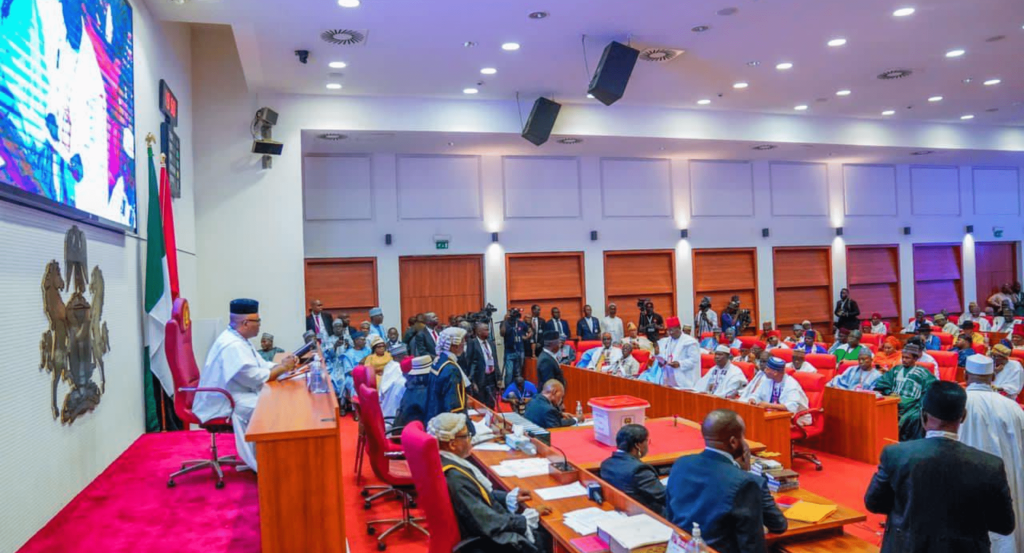Petroleum engineers and energy executives worldwide have long recognized Nigeria as a powerhouse in the global oil and gas industry. As Africa’s largest oil producer and home to the continent’s biggest natural gas reserves, Nigeria’s hydrocarbon sector has been the backbone of its economy for decades. However, as the world grapples with energy transitions and Nigeria faces its own internal challenges, the country’s oil and gas industry stands at a critical crossroads.
Historical Context and Economic Significance
Nigeria’s journey as an oil-producing nation began in 1956 with the discovery of crude oil in Oloibiri, in the Niger Delta region. Since then, the industry has grown to become:
- The primary source of government revenue (accounting for about 65% of total revenue)
- The largest contributor to foreign exchange earnings (roughly 90%)
- A significant portion of the country’s GDP (approximately 9%)
The sector’s dominance has shaped Nigeria’s economic and political landscape, earning it the moniker “the Giant of Africa.”
Current State of Nigeria’s Oil and Gas Industry
Nigeria’s oil and gas sector is characterized by:
- Production Capacity: Crude oil production capacity of about 2.5 million barrels per day (bpd), although actual production often falls short due to various challenges
- Natural Gas Reserves: Estimated 200 trillion cubic feet of natural gas reserves, the largest in Africa
- Major Players: A mix of international oil companies (IOCs) like Shell, ExxonMobil, Chevron, and indigenous companies
- OPEC Membership: Nigeria is a key member of the Organization of Petroleum Exporting Countries (OPEC)
- Downstream Sector: Four state-owned refineries (often operating below capacity) and a growing number of private refineries under development
Key Challenges Facing the Industry
Despite its potential, Nigeria’s oil and gas sector faces numerous challenges:
- Oil Theft and Pipeline Vandalism: Resulting in significant production losses and environmental damage
- Regulatory Uncertainty: Delays in passing comprehensive petroleum industry reforms
- Declining Investment: Reduced capital inflow due to global energy transition and local challenges
- Environmental Degradation: Oil spills and gas flaring causing severe ecological damage in the Niger Delta
- Community Unrest: Tensions with local communities over resource control and environmental issues
- Corruption and Mismanagement: Allegations of corruption in the state-owned oil company and government agencies
- Infrastructure Deficits: Inadequate refining capacity leading to dependence on imported refined products
- Global Energy Transition: Pressure to diversify as the world moves towards renewable energy sources
The Petroleum Industry Act (PIA) and Regulatory Reforms
After years of delay, Nigeria passed the Petroleum Industry Act (PIA) in 2021, aimed at overhauling the sector:
- Restructuring of the Nigerian National Petroleum Corporation (NNPC) into a limited liability company
- Creation of new regulatory bodies: Nigerian Upstream Petroleum Regulatory Commission (NUPRC) and Nigerian Midstream and Downstream Petroleum Regulatory Authority (NMDPRA)
- Introduction of a new fiscal regime to attract investment
- Provisions for environmental remediation and sustainable development of host communities
The implementation of the PIA is expected to bring much-needed transparency and efficiency to the sector.
Technological Innovations in Nigeria’s Oil and Gas Industry
To address challenges and improve efficiency, the industry is increasingly adopting new technologies:
- Digital Oilfields: Implementation of IoT sensors and big data analytics for real-time monitoring and optimization
- Drone Technology: Use of drones for pipeline surveillance and leak detection
- Artificial Intelligence: Application of AI in exploration, production optimization, and predictive maintenance
- Blockchain: Exploration of blockchain technology for transparent crude oil trading and supply chain management
- Remote Operations: Increasing use of remote monitoring and control systems to enhance safety and efficiency
The Rise of Indigenous Oil Companies
Recent years have seen a growing role for indigenous oil companies in Nigeria’s oil and gas sector:
- Divestment by IOCs: Major international companies selling onshore assets to local firms
- Local Content Policy: Government initiatives to increase Nigerian participation in the industry
- Success Stories: Companies like Seplat Energy, Oando, and Aiteo emerging as significant players
- Challenges: Indigenous companies facing funding constraints and technical capacity issues
Natural Gas: Nigeria’s Underexploited Resource
While oil has dominated Nigeria’s energy narrative, natural gas presents significant opportunities:
- Gas-to-Power: Efforts to harness gas for domestic electricity generation
- LNG Exports: Nigeria LNG Limited (NLNG) as a major global LNG exporter
- Gas Flare Commercialization: Programs to capture and monetize gas that would otherwise be flared
- West African Gas Pipeline: Regional infrastructure to supply gas to neighboring countries
Environmental and Social Considerations
The environmental and social impact of oil and gas operations in Nigeria cannot be overstated:
- Niger Delta Degradation: Decades of oil spills and gas flaring have severely impacted local ecosystems
- Community Relations: Ongoing tensions between oil companies and host communities over resource control and environmental damage
- Climate Change Commitments: Nigeria’s pledges under the Paris Agreement necessitating a reduction in carbon emissions
- Social Investment Programs: Increased focus on corporate social responsibility and community development initiatives
Case Study: The Dangote Refinery Project
The Dangote Refinery, a 650,000 bpd integrated refinery and petrochemical complex near Lagos, represents a significant development in Nigeria’s oil and gas landscape:
- Potential to transform Nigeria from a net importer to a net exporter of refined petroleum products
- State-of-the-art technology to produce Euro V quality fuels
- Expectations of job creation and economic multiplier effects
- Challenges in completion and integration into the existing industry structure
The Impact of Global Energy Transition
As the world moves towards cleaner energy sources, Nigeria’s oil and gas industry faces both challenges and opportunities:
- Diversification: Need to diversify the economy away from oil dependence
- Renewable Energy: Growing interest in solar, wind, and other renewable sources
- Natural Gas as Transition Fuel: Potential for gas to play a significant role in the energy transition
- Skill Transfer: Opportunities to transfer oil and gas expertise to emerging energy technologies
- Stranded Assets: Risk of oil and gas assets becoming stranded as global demand potentially declines
Future Outlook and Opportunities
Despite the challenges, Nigeria’s oil and gas industry continues to present significant opportunities:
- Deep Offshore Exploration: Potential for new discoveries in deep and ultra-deep offshore areas
- Gas Monetization: Further development of gas-based industries and infrastructure
- Modular Refineries: Encouragement of small-scale refining to address local fuel shortages
- Petrochemicals: Expansion of petrochemical production to capture more value from hydrocarbons
- Regional Hub: Potential for Nigeria to become a regional energy hub for West Africa
- Technology Adoption: Opportunities for further digitalization and technological advancement in the sector
Conclusion
Nigeria’s oil and gas industry stands at a pivotal moment in its history. While the sector continues to be the lifeblood of the nation’s economy, it faces unprecedented challenges from both internal and external factors. The successful implementation of the PIA, coupled with strategic investments in technology and infrastructure, will be crucial in determining the industry’s future trajectory.
As Nigeria navigates the complexities of the global energy transition, it must balance the immediate economic benefits of hydrocarbon production with long-term sustainability goals. The country has the potential to leverage its vast natural gas resources as a bridge to a cleaner energy future while gradually diversifying its economy.
The path forward for Nigeria’s oil and gas industry will require adept policy-making, technological innovation, environmental stewardship, and robust community engagement. If these challenges can be effectively addressed, Nigeria’s energy sector can continue to be a driving force for economic development, not just for the country but for the African continent as a whole.



























